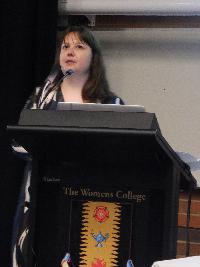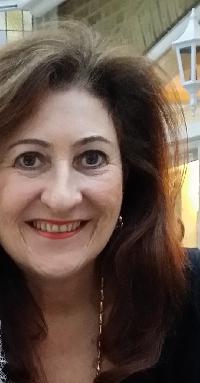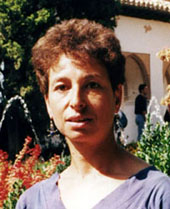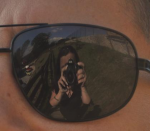| Pages in topic: [1 2] > | What is the best age to learn a language?
|
|---|
| | | When you're in love! | Jan 7, 2019 |
I think Andrew Dalby mentions this in passing in his book 'languages in Danger' - that in some tribal societies, young people move to a group speaking a different dialect or language when they marry.
That was my experience when I married a Dane. An earlier knowledge, though somewhat shaky, of German was a help, but in fact my German improved enormously when I went back to it through Danish rather than English.
Motivation is vital, and immersion in the language, on a par with the ... See more I think Andrew Dalby mentions this in passing in his book 'languages in Danger' - that in some tribal societies, young people move to a group speaking a different dialect or language when they marry.
That was my experience when I married a Dane. An earlier knowledge, though somewhat shaky, of German was a help, but in fact my German improved enormously when I went back to it through Danish rather than English.
Motivation is vital, and immersion in the language, on a par with the children, will make a big difference, then you can use both methods, the rule-based and 'picking it up as you go'. These reinforce each other with a conscious effort to coordinate them and learn the language.
The teacher-and-rule-based method may also help to correct pronunciation and accent.
It is true that adults may never acquire an entirely native accent, but they can go a long way in the right direction, so that they can talk naturally among native speakers without the foreign accent distracting from what they are talking about.
People sometimes accused the late Henrik, Prince Consort of Denmark of never really learning Danish. He spoke and wrote excellent Danish, but he never entirely lost his French accent. ▲ Collapse
| | | | neilmac
Španija
Local time: 12:10
Spanish to English
+ ...
| | There's nothing like total immersion | Jan 7, 2019 |
It’s best to start learning languages at an early age. I started speaking French at 5 in a French Kindergarten (”École Française de Lisbonne”), but in my opinion there’s nothing like total immersion: that’s what happened to me when I moved to Belgium in 1985 to work and soon realized how my everyday vocabulary was deficient and small things like going to the grocery store or the butcher shop were not as easy as I thought they would be…
| | | | | there’s nothing like total immersion | Jan 7, 2019 |
Well, I wouldn't rule it out completely. But it would demand that you learn two languages early (before 10?). Nowadays that isn't that uncommon. I did it with Norwegian and Spanish. But then, you need to evolve and maintain both - and that is the tricky part.
In the end, I can write any style and about nearly any subject in Norwegian, while I have trouble with basic orthography in Spanish....
| | |
|
|
|
Tom in London
Ujedinjeno Kraljevstvo
Local time: 11:10
Member (2008)
Italian to English
In my experience of children learning languages, the best age AT WHICH TO LEARN A LANGUAGE is from about 5 up to adolescence. I've watched American families living in Italy (academics on overseas postings) who brought their families with them and put them into Italian schools (which BTW they say are far better than American schools). The kids immediately struck up friendships - as kids do - with the Italian pupils and were absolutely fluent in Italian, which (since they were in Italy) was their... See more In my experience of children learning languages, the best age AT WHICH TO LEARN A LANGUAGE is from about 5 up to adolescence. I've watched American families living in Italy (academics on overseas postings) who brought their families with them and put them into Italian schools (which BTW they say are far better than American schools). The kids immediately struck up friendships - as kids do - with the Italian pupils and were absolutely fluent in Italian, which (since they were in Italy) was their first language for everyday purposes. At home they spoke English and had a lot of work to do helping their parents, for whom it was a real struggle to learn Italian.
As to why that is: in those particular families I think the parents had absorbed a whole complex series of preconceptions about Italians that they picked up in America and which made it very difficult for them to just "be Italian" as the children did. Children in the 5-15 age range don't have prejudices, which makes it really easy for them to "be different". I don't think they even need any lessons; they just slip easily into the "different skin". But now that they're all back in the US I don't know if they lost their Italian as quickly as they picked it up.
I think it's probably very difficult to learn a language unless you're living in the country where it is spoken. I've tried to learn Spanish in the UK but I gave up. I would need to be in Spain. Same thing with Brazilian Portuguese. Having Brazilian friends and listening to them talk isn't enough. I would need to be in Brazil.
As an adult, it somehow becomes much more difficult. But if there's a "need to know" factor, you can still learn. I only began speaking Italian after I moved to Italy and needed to eat (so I had to buy groceries....in Italian!)
[Edited at 2019-01-09 12:10 GMT] ▲ Collapse
| | | | Daniel Frisano 
Italija
Local time: 12:10
Member (2008)
English to Italian
+ ...
After full maturity, with an experienced and well-trained mind.
I taught myself German in my early- to mid-forties, now in the process of learning Czech having just hit the half-century mark, can't wait to be retired or at least half-retired so I can give a shot at something new.
Of course you need to set up your life so that you can set aside at least a couple of hours every single day for study/practice, and that can be complicated in the 20-60 age bracket.... See more After full maturity, with an experienced and well-trained mind.
I taught myself German in my early- to mid-forties, now in the process of learning Czech having just hit the half-century mark, can't wait to be retired or at least half-retired so I can give a shot at something new.
Of course you need to set up your life so that you can set aside at least a couple of hours every single day for study/practice, and that can be complicated in the 20-60 age bracket.
AND you need a mind that is hungry for knowledge and is able to keep out the endless crap that otherwise will keep piling up during adulthood - not that easy either...
[Edited at 2019-01-09 04:29 GMT] ▲ Collapse
| | | | | 5-12 years old. | Jan 9, 2019 |
While it's not my branch of linguistic studies, language acquisition is considered to have a critical period for development between 5-12 years old. It's certainly a matter of discussion, but even among different fields, there seems to be an agreement that languages learnt after puberty simply don't share the same status as those learnt during the critical period.
I'm not a neurolinguist either, but second languages learnt after puberty become centralized in different areas of the brain th... See more While it's not my branch of linguistic studies, language acquisition is considered to have a critical period for development between 5-12 years old. It's certainly a matter of discussion, but even among different fields, there seems to be an agreement that languages learnt after puberty simply don't share the same status as those learnt during the critical period.
I'm not a neurolinguist either, but second languages learnt after puberty become centralized in different areas of the brain than your native language (still in Brocca's though). This doesn't necessarilly happen if you learn it during the critical period.
[Edited at 2019-01-09 00:18 GMT] ▲ Collapse
| | | | | Depends on your goals | Jan 10, 2019 |
If your goal is to sound and feel a language like a native speaker, you will need to be consistently exposed to that language at very early age (2-6 years). It can eventually become your target language.
Now, if you fell in love with a language in your 40s, you can still learn that language, and eventually it could become your source language.
Just be realistic; kids use 100% of their available time to master a language. We, adults, have much less time (work, family, so... See more If your goal is to sound and feel a language like a native speaker, you will need to be consistently exposed to that language at very early age (2-6 years). It can eventually become your target language.
Now, if you fell in love with a language in your 40s, you can still learn that language, and eventually it could become your source language.
Just be realistic; kids use 100% of their available time to master a language. We, adults, have much less time (work, family, social life, etc.). In other words, unless you are retired or have any other fixed income, you will only be able to dedicate 1 or 2 hours a day (at best) to foreign language learning. Well, that’s not enough.
Most likely, a much better option would be (for adults) to perfect the knowledge of the languages you already speak (including your mother tongue). There is just not enough time to take on a new language when you are in your 40s.
In other words, read a lot in the languages you already speak, read all you can, and then read again. When you have spare time, just read quality literature, papers, etc. This, and only this, will set you apart from the messes of 24 language speakers (I too can say "hello" in Chinese).
[Edited at 2019-01-10 11:55 GMT] ▲ Collapse
| | |
|
|
|
| The earlier the better | Jan 10, 2019 |
Hello,
My native language is Urdu and Punjabi, i learned English in school from Pakistani teachers. when i was 27years old, i started learning Chinese language. so far i have learned about three years of Chinese, as for daily use its ok. but there is a lot to learn. As to pronunciation, although my Chinese friends say that sometimes its hard to guess if you are Pakistani or Chinese, it still has a touch of accent, thats hard to get rid of, but as to speaking in daily life its ok. In my op... See more Hello,
My native language is Urdu and Punjabi, i learned English in school from Pakistani teachers. when i was 27years old, i started learning Chinese language. so far i have learned about three years of Chinese, as for daily use its ok. but there is a lot to learn. As to pronunciation, although my Chinese friends say that sometimes its hard to guess if you are Pakistani or Chinese, it still has a touch of accent, thats hard to get rid of, but as to speaking in daily life its ok. In my opinion, the earlier one starts to learn a new language the better he will catch the accent. if one wants to become a foreign language teacher then the accent will matter, otherwise its nothing to be afraid of. ▲ Collapse
| | | |
Why not?
| | | | Tom in London
Ujedinjeno Kraljevstvo
Local time: 11:10
Member (2008)
Italian to English
Maxi Schwarz wrote:
Why not? 
Actually, the original question left me puzzled: "What is the best age to learn a language?"
I've never heard of an age learning a language. An age is an abstract thing. How could you select an age as the best one, and teach it a language? Why would you want to?
| | | | Daniel Frisano 
Italija
Local time: 12:10
Member (2008)
English to Italian
+ ...
| to / at which to | Jan 14, 2019 |
Tom in London wrote:
Actually, the original question left me puzzled: "What is the best age to learn a language?"
At first sight it smelled of poor wording, requiring "at which" before "to", then I remembered a parallel construction from the old Byrds song, taken from the Book of Ecclesiastes: "To everything (...) there is a season (...)".
A season to everything, an age to learn. Shall we give it a pass as a (perhaps involuntary) poetic licence?
[Edited at 2019-01-14 18:23 GMT]
| | |
|
|
|
| Typical Italian mistake | Jan 15, 2019 |
Tom in London wrote:
Actually, the original question left me puzzled: "What is the best age to learn a language?"
I've never heard of an age learning a language. An age is an abstract thing. How could you select an age as the best one, and teach it a language? Why would you want to?
In fact this is an article written by an Italian professor if you click the link above, you will also see the name (which is Italian).
| | | | | Not a mistake at all | Jan 15, 2019 |
It's perfectly acceptable and normal in English to say "What is the best age/time/day to do something" and miss out the "at which".
I'm just wondering what's the best way to demonstrate this.
| | | |
Chris S wrote:
It's perfectly acceptable and normal in English to say "What is the best age/time/day to do something" and miss out the "at which".
I'm just wondering what's the best way to demonstrate this.
Thanks for this
| | | | | Pages in topic: [1 2] > | To report site rules violations or get help, contact a site moderator: You can also contact site staff by submitting a support request » What is the best age to learn a language? | CafeTran Espresso | You've never met a CAT tool this clever!
Translate faster & easier, using a sophisticated CAT tool built by a translator / developer.
Accept jobs from clients who use Trados, MemoQ, Wordfast & major CAT tools.
Download and start using CafeTran Espresso -- for free
Buy now! » |
| | Trados Studio 2022 Freelance | The leading translation software used by over 270,000 translators.
Designed with your feedback in mind, Trados Studio 2022 delivers an unrivalled, powerful desktop
and cloud solution, empowering you to work in the most efficient and cost-effective way.
More info » |
|
| | | | X Sign in to your ProZ.com account... | | | | | |




































